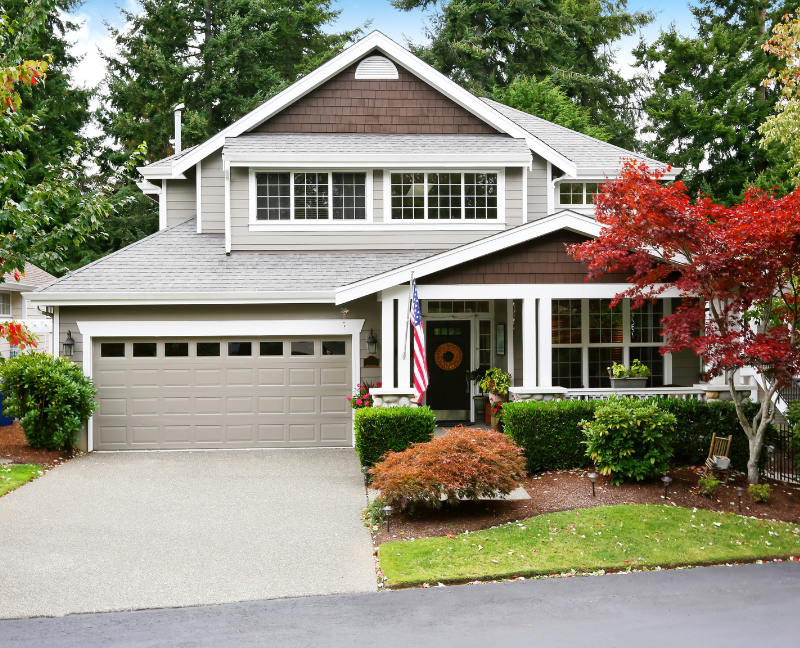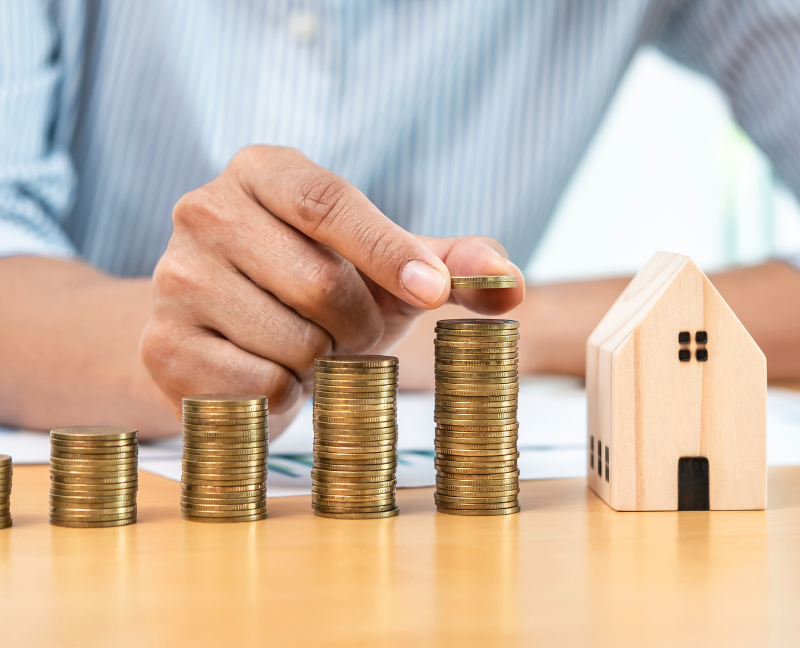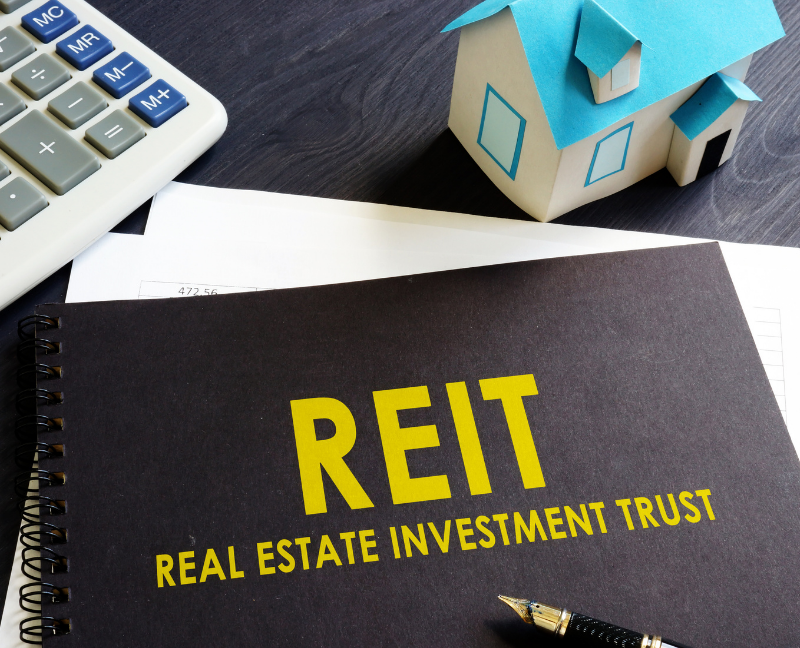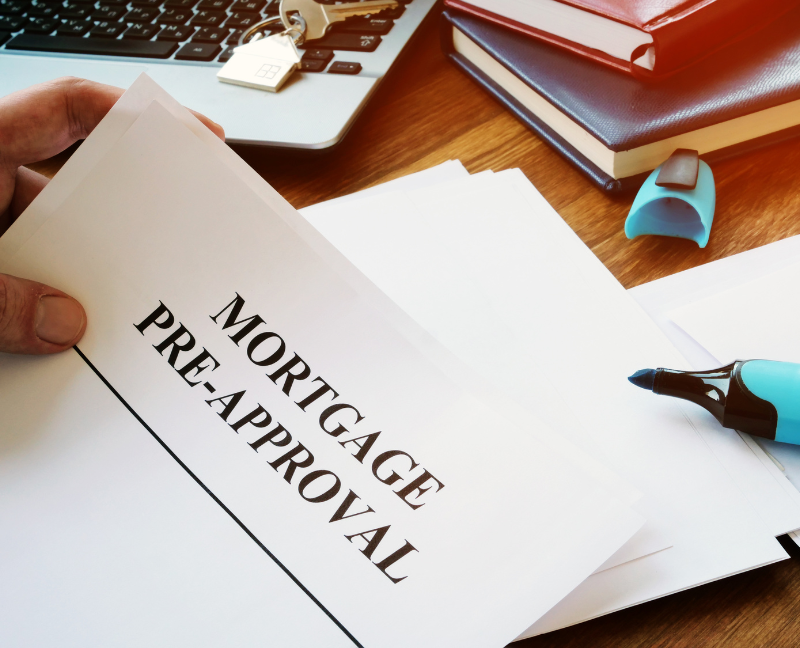Selecting the best time of the month to close on a house may seem like a low priority among the many challenging decisions involved in purchasing a home. If everything stays the same, many will close at the end of the month to save mortgage interest.
However, for some people, existing leases or HOA payments on the new home may sound complicated. In this post, we'll discuss the basic things you need to know when choosing the best month to close a home.
Your mortgage payments are due at the start of each month. Unlike most mortgage payments, your initial payment is due the day after the first month after closing. If you close on February 1, your first payment is April 1. Tons of advice seems to suggest that closing on a house early in the month can result in a month's worth of "free" housing. However, it isn't like that.
Early closing gives you a month without a mortgage payment. However, you're paying mortgage interest, so your total mortgage payment will be the same as if you closed later in the month. You'll pay hundreds of dollars in interest for the first month of occupancy, but your house will be paid off the same day as the alternate-universe version of you, who closed later.
Choosing the best time of the month to close on a house without a mortgage payment may be enticing if you're suffering cash flow concerns, and scheduling a closing early in the month may be easier and less stressful. It is important to remember that these conveniences come at a significant cost.
Pros
Cons
Closing later in the month may be worth it; however, there are also other factors to consider, such as:
If you close late in the month, several homeowners associations charge more. Closing early may save you more in interest than these additional expenses. If you're moving into a home with them, HOA fees are worth considering, but they're unlikely to change your mind about closing early.

The seller often pays the buyer's closing costs in a buyer's market. These closing costs usually include early closing interest. This indicates that the buyer has no drawback in getting an early closing, provided the seller offers to pay for the transaction. If so, ensure that your closing costs include interest.
Renters might time closings to avoid extra rent. When calculating, include the additional interest you'll pay if you close early in the month to avoid paying more rent.
If you need to move in by a specific date to save on rent, closing at the end of the previous month is better than the beginning.
When it comes to scheduling, refinances are typically significantly simpler. Your initial mortgage payment will not be delayed or incur extra interest. However, there is the problem of keeping interest payments from happening simultaneously. If you're refinancing with the same lender or not for your primary house, you should be fine with closing date scheduling.
Refinancing with a different lender will delay funding for three days due to a rescission period. You won't pay more for a 3-day delay, but you may pay more interest if it pushes the old loan payback too close to the weekend. To avoid this, sign your docs on Tuesday or Wednesday. Avoid Mondays unless your escrow agent can wire the loan off that day.
Conclusion
Closing later will save hundreds of dollars for most house buyers, though there are a few complicated factors to take into account.
For good reason, the end of the month is the busiest period for shutting; although closing during "rush hour" might seem inconvenient, your wallet will appreciate it. Despite the rush, you should carefully list everything you will need to bring to the closing and make sure you have all your documents to avoid last-minute issues.
Get exclusive real estate tips delivered right into your inbox. Click this link to join for free!
Buying a home is typically the most costly investment a person makes in their lifetime. Some lenders require a 20% down payment to give better mortgage rates. In addition to your mortgage and down payment, hidden costs when buying a home sometimes surprise buyers, especially those already struggling.
So what are the hidden costs of home buying?
Closing costs, additional hidden costs when buying a home, and the requirements of mortgage lenders, to name some, can pile up for buyers, particularly for individuals with little to no real estate industry experience.
When preparing your budget for your upcoming home buying, you should look into the possible hidden costs associated with homeownership.
Don't worry! Hidden costs won't startle you, and you can reduce unnecessary expenses.
A typical period of 45 days is required to close a house. Throughout that approximately two-month interval, several costs accumulate, including the following:
A seller's insurance is earnest money if you withdraw from the agreement. It's usually 1-3% of the home's sale price and due three days after the seller accepts and signs your offer. If you cancel the house purchase, you lose your earnest money. You keep it if the vendor backs out. If the sale fails for a contingency, you save the money.
Your lender will verify that the seller's home value is accurate. Here, you pay for a home appraisal. This task cannot be price-shopped because an appraiser will be assigned by a designated appraisal management company (AMC).
The following variables will affect the overall cost of your appraisal:
Even though your lender doesn't require a home inspection, 85% of homebuyers seek one to avoid significant structural issues. Scheduling a home inspection costs money, but it saves on repairs over time.
Home inspection costs depend on square footage, cost of living, and housing market conditions, just like appraisals. Prices average $300–$400; however, they vary based on where you reside and what you buy.
On your closing date, nothing compares to going down to take possession formally and then realizing you needed more time to be ready for the long list of closing expenses. The following costs need to be covered before you may become the owner of your home:
Your lender charges a loan origination fee for reviewing, underwriting, and approving your mortgage. At closing, you'll owe $2,000–$4,000 on a $400,000 house due to loan origination fees of 0.5% to 1%.
Your closing meeting requires proof of homeowners insurance to protect your investment. Before you can sign off on your mortgage, lenders usually want you to have paid for an entire year's worth of insurance.

You'll also pay your new home's property taxes at closing. The monthly payment is prorated based on how long you own the home this year. The valuation of your new house and the current tax rate will determine your property tax bill. Your tax rate is affected by the state, county, and city in which you reside.
Earnest money is held in escrow while parties negotiate the sale. Future lender uses of accounts will change. Monthly mortgage payments go into escrow and are operated to settle property taxes and homeowners insurance.
Third-party escrow companies maintain and operate your account, which your lender draws from. Companies charge 1-2% of the sales price to put it up. Usually, the buyer and seller split this expense, but they might negotiate this in the original offer.
Other factors affect your home buying cost, depending on where and how you buy. These charges don't apply to every transaction, so often surprise homeowners:
It takes more than joining the club and following the rules to buy a house in a homeowners association area as its benefits require HOA fees.
Homebuyers often overlook the HOA transfer charge. This fee covers HOA administrative expenditures when a home changes ownership.
More buyers are covering this cost to make their offer more appealing. Remember this cost as a negotiation strategy in a hot market, and be prepared to pay it if it's part of your final offer.
Mortgage insurance mitigates lenders' risks when they allow no-down-payment purchases. Small down payments increase lender risk, but mortgage providers know that not everyone can afford one. Rather than refusing mortgages to applicants who lack the necessary funds, lenders impose a tiny cost on mortgage insurance.
PMI is frequently required on traditional mortgage loans with less than 20% down. It appears as a monthly mortgage fee until you've paid off 20% of your home's value. FHA loans without a 10% down payment require a mortgage insurance premium (MIP).
Looking for a new home in Indiana but don't know how to get started? Our team at RE/MAX Advanced Realty is more than happy to help!
From answering your inquiries, such as the hidden costs when buying a home and even after you buy the property, we're here to guide you!
Leave a comment or call us at 317-316-8224 to get started.
The conditions of your life, as well as your financial situation, such as the quantity of equity you have in your house, your ability to finance a new home, and all of the fees associated with selling your home, should be taken on what to consider when selling a home.
It is also essential that you have a concrete knowledge of the local housing market and how its seasonal changes can have an effect on your objectives.
If you are wondering "what to consider when selling a home," the following are some essential questions to ask before actually putting your property on the market.
Interesting Reads:
Below are a few critical questions to ask before selling your home, and answers that might help you:
Most real estate agents evaluate recently sold properties in your area that are comparable to yours to determine the worth of your home. It's common to refer to these comparable properties as "comps." By comparing the sales prices of various comparable properties, you can get an idea of the price range that potential buyers of your property may be willing to spend.
When looking for comparable properties, examine the number of rooms, baths, square footage, and unique features. No two properties are the same; thus, you must alter each element individually, which is difficult for each comp. Luckily, computers are excellent tools to use for this task. Utilize the home's value tool to determine value using recent comparable house market data.
Want to know the value of your home? Click this.
Home equity should cover your mortgage, selling, and relocation expenditures. Many people wait to sell until they have enough equity for a down payment on a new house.
Note: You have negative equity if you owe more than the home is worth. Being "underwater" on your mortgage is frequent. Selling your property for far less than you purchased is usually a last resort.
If you want to sell your property, what you need to do first is to calculate your equity. Once you know "how much of your home you own," you can assess if your equity will cover selling charges.
Many property sellers focus on the 5-6 percent agent commission. However, selling a property can cost 10% of the transaction price. Additional costs include seller concessions, closing fees, repair costs, and property overlap pricing if you can't sell and buy. On top of that, you have to consider the time you'll spend and the amount of stress you might undergo.
Understanding your monthly income vs debt payments is crucial to qualifying for a loan. Many lenders follow the 28/36 guideline, which limits housing expenses to 28% of gross income and total indebtedness to 36%.
Check your relocation timetable and how it will affect your aims to decide if you should sell. In case you didn't know, sales delays can cost money. It might delay a project, cost storage or temporary accommodation, and require home maintenance.
One of the best indicators of property sale time is Days On Market (DOM). This statistic records how long a home is on the market, from listing to contract. Understanding market factors like interest rates, home sales, and home price appreciation might affect your goals and timetable.

As a seller, you must disclose house issues to buyers. No repairs are required, but you may need to price your home depending on the cost of essential repairs or offer a concession to the buyer to perform them themselves.
Large renovations may raise your home's worth before selling, but not all will. Home improvements and upgrades have different effects depending on the market and house value.
Selling your home traditionally is an active process, meaning you have to do a lot of things. This includes preparing your property for sale, working with an agent, making repairs and changes, showing your home, and negotiating with purchasers. You don't know when or if a good deal will close.
There are many ways to sell your property and to choose which one suits you, you have to consider your time, resources, and energy to decide your readiness.
In traditional sales, a real estate agent guides you. Besides marketing the home, a real estate agent can communicate with the buyer's agent and handle sale paperwork.
Conclusion
These are just some of the questions you should ask yourself before marketing your property, and surely there will be more as you continue your home-selling journey.
If you need a guide or expert advice on how to do this easier and quicker, our team at RE/MAX Advanced Realty is here to help!
Call us at 317-316-8224 or visit our website today!
In the first part, we've talked about why people often need to sell their homes quickly as well as some helpful strategies for selling a house in Indiana.
Now, we'll share more helpful ways to expedite your home sale.
Here are more strategies you can use if you want to sell your house in Indiana faster and easier:
Selling your home might not be a walk in the park; luckily, there are strategies you can implement to make it less challenging, such as:
Selling a home quickly with cash offers is possible. Home sales take the longest after buyer finance approval; cash offers eliminate this stage.
With cash offer requests, buyer financing concerns are eliminated. There are no scheduled TRID deadlines either. Forgoing appraisals speeds up the process for cash purchasers—close cash purchases after title work.
Overpriced homes do not sell. Therefore, setting the proper home value is an excellent way to sell it quickly.
Additional Tips:

Staging and decorating homes as well as the yard works well. The better your home is ornamented and cleaned, the better the photos will be. Great photos will impress internet homebuyers and potential buyers who request a showing and tour of your home will make offers.
High-quality photographs improve showings and offer chances. High-resolution images make your home look vibrant and intriguing. Unless your real estate agent has the expertise and equipment to take the pictures, insist they hire a pro.
One more way to sell a house fast is to write outstanding marketing copy. You might think that people don't read this but the truth is, the majority of them do read the marketing remarks. Here are some pointers to remember when crafting the ideal marketing statement for your home:
One of the reasons why it's hard to sell a home might be because the house is difficult to show. It might mean the house is unavailable for showing, restricted showing times, not meeting short-notice requests, keeping alarms on, or being present during the viewing. Other than this, it might be because of minor but troublesome inconveniences, such as the owner's dog's incessant barking or messy yards and houses that turn people off.
That said, make sure that your home is not only clean; it should also be easily available for viewing.
In line with the statement above, a clean, well-kept home attracts potential buyers. Dirty dishes, scents, and piles of clothing sort of act like a repeller. Therefore, cleaning your home thoroughly is crucial. Avoid overgrown bushes and neglected garden beds in your yard. Make beds, clean bathrooms with toilet seats down, vacuum carpets and sweep floors, remove dog waste from the yard, trim the grass, and keep landscaping in order before a showing. A tidy, orderly home impresses buyers.
We hope that these tips help you sell your home in Indiana faster. If you have more techniques, feel free to share them in the comment box below.
Selling a house in Indiana but don't know how to get started? If yes, our in-depth guide will help you understand why people want to sell their homes faster and how to do it in a breeze.
Two of the top reasons why someone is selling a home in Indiana is because of a financial issue or a major life event. Here are more reasons why home sellers want to move their property quickly:
Divorce is a popular reason for quickly selling a house in Indiana and other countries. It often prompts a speedy home sale since divorcing spouses typically want to move forward. Home payments and maintenance prevent divorcing couples from moving forward. Thus, these home sellers are often eager to move swiftly.
House inheritors generally want a quick sale. This is especially true when none of the heirs utilize the residence or live far away. An inherited house is a tremendous financial opportunity, but it will only cost money temporarily. Faster home sales mean lower costs.
Owners behind their mortgage payments are often motivated to sell their property to prevent foreclosure. Avoiding foreclosure requires sellers to put their homes on the market quickly because they have to meet rigorous deadlines set by the lender.
Life events like job loss, income reduction, or relocation can encourage homeowners to sell their property quickly. The following mortgage payment is 30 days away after losing income. People relocating for work are ready to leave their existing area.
Medicaid spend downs also motivate homeowners to sell quickly. Especially if the homeowner is in a long-term care facility or other care home and nearing Medicare limits, by selling assets rapidly, they can stay in their care facility and qualify for Medicaid.
For some people who can't afford significant repairs, one of their alternatives includes selling the home to someone who can fix it. This is especially true for extensive repairs like foundation, septic, or water intrusion.
Last but not least, homeowners who find their new dream home are motivated to sell their current property quickly to get it.
Ways To Selling A Home In Indiana Faster
Selling a house in Indiana can be seamless and efficient when you employ the right strategies. This guide will discuss the first two ways to speed up your Indiana home selling:

Buyers are attracted to houses that are well-maintained and in good condition. That said, examine your home and repair anything visibly broken.
Simple adjustments include fixing damaged baseboards, tightening slack handrails, finishing paint jobs, and low-grade door latches. Also, replace any burned-out light bulbs. Your home will be more appealing to purchasers if you take the time to fix these minor problems.
Your house needs to be everywhere so that potential buyers can see it. Make your place as visible as possible. Getting in touch with a real estate agent is the most effective and straightforward way to achieve this.
You can access the local MLS with the help of your agent. Every real estate-related website, including national search engines, regional brokerage websites, and websites run by real estate agents, will receive a feed of your home after being listed in the MLS. Here are more ways to reach a wider market for your home:
These are just some ways to sell your house in Indiana as quickly as possible. In Part 2, we'll share more strategies to help make your home selling faster and easier.
Real estate investment is a rewarding way to build wealth and financial stability. However, it’s important that you fully understand how each investment works before diving into it.
Some of the most popular real estate investment Indiana methods include "Fix and Flip" and "Buy and Hold."
We’ll find out more about this as well as the other real estate investment strategies below:
Buying a house, making improvements, and selling it quickly for a profit is known as the "fix and flip" technique. Due to several variables, including urbanization, increased disposable incomes, and demand for modern spaces, this technique has gained traction in the real estate industry.
Investors looking for rapid gains will find this technique appealing. However, it requires thorough preparation, wise choices, and market knowledge. You must carefully consider the location, price range, property condition, and possible resale value.
Unlike the Fix and Flip approach, Buy and Hold concentrates on long-term property acquisition through capital appreciation and rental revenue. This approach fits nicely with the real estate market, which has been steadily expanding over time.
The demand for rental properties is rising due to urbanization, infrastructure development, and a growing population. Investors can profit from rental returns and the gradual increase in value of their properties by keeping them. However, this tactic requires careful site selection, extensive research, and efficient property management.

Potential real estate investors should evaluate each approach's profit potential by considering several essential elements to make well-informed judgments. When considering a fix and flip, it's crucial to consider aspects including the state of the market, the cost of renovation, carrying expenses, and the possible selling price.
Conversely, Buy and Hold investors should concentrate on viable rental yield, capital growth opportunities, and continuing maintenance expenses. Accurately estimating profit potential in both strategies requires implementing data-driven approaches, professional consultation, and thorough market research.
Comprehending the potential hazards of every approach is essential for making wise investment choices. Risks associated with fix and flip properties include unforeseen remodeling expenses, shifting market conditions, protracted holding times, and difficulties locating qualified purchasers.
On the other hand, risks associated with buy-and-hold investments include vacancy periods, problems with tenants, economic downturns, and regulation changes. For risk mitigation to be effective, you need to implement techniques, such as creating a contingency fund, keeping liquidity, diversifying your investments, and keeping up with market trends.
Although the Buy and Hold and Fix and Flip methods are separate techniques, profitable investors frequently take a balanced approach to investing that incorporates aspects of both strategies.
This strategy allocates resources to both long-term and short-term properties to diversify the investment portfolio. Investors who employ a combination of tactics can profit from long-term capital growth, income stability, and short-term gains.
Finding the ideal balance based on personal objectives, risk tolerance, and market circumstances is critical.
Want to start your real estate investment journey? Call us at 317-316-8224 so we can assist you!
Selling a home is not only a huge decision to make, but also a complicated process to take. If you want to simplify the journey while increasing your earning potential, the key is to get yourself ready.
Wondering what those questions are?
Don't worry! In this post, we've compiled all the questions you should ask before putting your property on the market.
Have you considered putting your house up for sale soon? Before moving on to the next step, you must ensure you have answered these essential questions about selling a house.
Below are the following questions about selling a house:
Selling your property is possible year-round, but some months are more accessible, faster, and more rewarding. Home buying is highest in spring and summer and lowest in fall and winter.
Selling your home in June, May, or July maximizes house profits. Homes sold in June and May earn 9.2% and 7.4% more than average. The day you list your home matters, too, according to data. On Thursdays, homes sell faster and for more money.
However, real estate is very localized, so the ideal selling period depends upon your market and homeowner's situation. Think about:
The time to sell depends on location and housing market conditions. Listing price, home condition, and marketing and staging skills also matter. According to NAR data, the average home is on the market for 62 days. It varies widely by state. You should know how fast your home will sell in your market.
Condition and demand for similar homes impact your home's value. It would be best to look at comparable sales to estimate the value of your home. They should match your size and condition. These "comps" help a real estate agent price your home. Alternatively, an iBuyer might buy your house without listing it.
Selling a house has several costs. Many don't require an upfront payment, which is good. Instead, many come from closing sales revenues. Typical fees are 10% of your home's sale price.
These include:
Selling to an iBuyer, skipping the real estate agent, or selling as-is can reduce these fees. A home that needs lots of repairs will sell more slowly.

Many homebuyers want a "move-in ready" property with minor repairs. Younger buyers (76%) need a move-in ready house. Cosmetic repairs increase house value, so make repairs before selling.
Fix severe faults like a roof or AC unit, or boost your rate. Most purchasers won't pay top dollar if massive, expensive projects are coming.
Seller inspections speed up repairs. For a few hundred dollars, home inspectors can check for issues. The report can guide pre-listing repairs. This can increase property value and speed inspections. Your state may require inspection issues disclosure.
Using a realtor has its own perks and cons. One advantage when working with a real estate agent is that they can help you sell your home faster. Listing, photography, showings, marketing, and closing are some of their services that can make your home-selling journey easier and smoother. They also have local market data to assist you price and marketing your home properly.
Pro Tip: Before hiring a real estate agent, be sure to research their services first. Look at past customer reviews to ensure they can provide the service you want. You may also seek referrals from family, friends, and coworkers.
A seller can inspect your home before listing. Some sellers do this, but it might help you prepare your home for sale. Even if you do, a home inspection is usually required after you accept an offer. After hiring a local inspector to assess their property, the buyer may request that you credit them for a few repairs.
The thing is, you may not be able to sell your home immediately. If that's the case, the first thing to check is the pricing as it may be overpriced for the market. Try to adjust the listing price based on recent similar transactions. Stage or fix any issues that prevent purchasers from buying your property.
Also, make sure your agent has marketing experience and local contacts. This boosts home visibility and sale potential. You may also remove the home from the market until local conditions improve.
As much as possible, you need to leave any fixture attached to the house. That might include built-in storage, shades, door hardware, etc.
However, if there's any installed appliance that you want to bring with you, you need to tell that to the buyer and state it in the contract.
Can you think of more questions to ask before selling your property? If yes, feel free to share them in the comments!
Buying a home is one thing; bidding for your dream house is another. It can be overwhelming and stressful, especially if you haven't done this before.
You may have prepared everything you need to purchase the property you want only to be outbid by another home buyer.
So, how to get a house in a bidding war and make sure that you end up with the home you want?
In this post, we'll give you easy steps that will make your offer stand out from the others.
During the process of purchasing a home, a bidding war might break out when there are numerous purchasers interested in buying the same property.
Each prospective buyer of a home continues to submit an offer that is higher or better than the previous one, which ultimately drives up the price of the residence.
In very competitive real estate markets, bidding wars may get out of control and even look nasty.
Here are nine simple steps on how to get a house in a bidding war:
Home-buying for the first time doesn't have to be complicated. You can save time and money by hiring a market-savvy real estate agent. The agent will negotiate with the seller's agent and recommend reputable, low-interest lenders. An expert loan officer with local roots can help the sale go through—request mortgage pre-approval to simplify the procedure.
Show the seller and agent you want the home. Most sellers worry about mortgage loan denials stopping the purchase. Request pre-underwriting from your lender before making an offer. A pre-approval shows you have funds, enhancing your negotiating power. This may speed up the closing procedure and waive your financial contingency.
Waiving buyer contingency clauses may help you get an offer approved on a house with many offers. Contingency offers eliminate surprises like repairs and title issues after buying a house.
Removing contract contingencies can sweeten your offer as the real estate market lacks homes. Strategy risk is higher. If you want to waive your financing or inspection contingency, talk to your real estate agent.
Down payments often indicate the buyer's financial situation to the seller. If the seller compares bids, a bigger down payment may suggest a stronger commitment to closing.
More cash in the bank informs the seller you won't walk away after low appraisals or hefty repair bills. To entice the seller, provide earnest money—sellers like purchasers with good faith deposits who want their ideal home. Average charges are 1% to 3% of the purchase price, depending on area.
As home inventories decrease, homebuyers must be inventive to convince sellers to accept their bids. Escalation clauses in buyer contracts allow you to match and offer more than the highest bid until a specified amount.
Consider inserting an escalation clause carefully. Seller's agents can use the clauses to get you to pay significantly more for the home than contracted. Talk to your realtor before utilizing this aggressive technique.

Appraisal discrepancies are a major cause of missed house sales. If prices soar faster than appraisers can justify, they will value a home below contract. A lesser price may cause sellers to walk away.
Offering to fill part of the evaluation gap can boost your offer. Paying more than the home's value may be necessary. Waiving the appraisal contingency and contributing to discrepancies ensures the seller won't have to lower the price following the house inspection.
An advance cash payment is the easiest way to get a house offer accepted with many offers. You have the money to close an all-cash home payment. A clean offer without mortgage lender contingencies is also what it means. Eliminating finance problems speeds up closure.
Acknowledge sellers' demands with some flexibility. If you can afford closing costs, offer. Understanding each seller's wants and acting fast will help you beat other bidders to the sale. To respond fast to the seller, make sure your real estate agent communicates. The seller may accept your offer if you show that you are serious about closing quickly and without complications.
Giving the seller a personal letter with your contract offer is outmoded. Your letter might convey that you value the home where they built many memories, enticing them to accept your proposal.
Avoid using your religion, race, or politics in the letter to avoid unconscious bias. Growing Fair Housing Act litigation is discouraging real estate brokers and their clients from employing this method.
Rejections for homes on the market might demoralize buyers. You may need to entice sellers with your bid.
The tips above can help show your willingness to go the extra mile to buy the property.
Do you have more tips on how to make your offer stand out? If yes, feel free to drop them in the comment section!
Although directly owning investment properties is the best real estate investing strategy, investors have other ways to generate money from real estate, like what we've mentioned in Part 1. This includes:
To continue this part, we will give you additional investment strategies in real estate that you may want to consider in the future.
Below are the additional five investment strategies in real estate:
The investing strategies in real estate through wholesaling are similar to those of investing in real estate through fixing and flipping, except that a wholesaler does not take ownership of the property they are investing in.
For a small wholesale fee, a real estate wholesaler finds a distressed property with an inspired seller, puts it under a contract at a below-market price, estimates repairs and fair market value, and assigns the buying and sale agreement to another investor.
Like mending and flipping, real estate wholesaling needs a lot of effort, market knowledge, and negotiation skills to get an owner to sell for less than market value. In several states, property wholesalers must be licensed.
Real estate wholesaling may be an excellent business for those with limited capital. Many professional real estate distributors use "real estate bird dogs" to find distressed property and pay a small referral fee.
Small funds known as real estate investment groups (REIGs) buy collections of rental properties and then make those properties available for investors.
REIGs promote vacant properties, screen tenants, collect rents, manage property, and maintain them for a percentage of monthly rental income. REIG investors benefit from ongoing rental income and equity appreciation when the houses are sold.
People searching for a hands-off real estate investing strategy may find REIG a viable alternative. Still, it's essential to look into management and their prior record of success or failure.

REITs are publicly or privately held companies that invest in residential build-to-rent (BTR) subdivisions, commercial real estate, and special-use properties like data centers and cold storage facilities.
At least 90% of REIT profits must be distributed as dividends. They can diversify an investment portfolio, generating real estate income without owning property. Typically, REITs lease investment-grade properties to credit tenants for long periods. Publicly listed REITs are more liquid than other real estate investments because they may be traded.
REITs do not offer the pros of owning a rental property, such as directly influencing property management decisions.
Investors in crowdfunding platforms buy shares in high-quality commercial and residential assets like new house developments, apartment buildings, and stable commercial real estate.
Crowdfunding can expose investors to homes they cannot afford directly. If a project is lucrative, crowdfunding investors receive pro-rata net income distributions and a part of any sales revenues.
Crowdfunding's illiquid shares may be locked up until a project is stable or during economic uncertainty. The crowdfund sponsor's experience in identifying profitable possibilities, financing and developing the project, and leasing and managing the property to optimize asset value and cash flow is also important to investors.
Private lenders buy real estate debt instead of equity. Private lenders finance real estate investors like home flippers who want an alternative to regular lending. Like banks, private lenders profit through lending fees and interest rates; however, most fees and interest rates are higher.
Although private lending can offer continuous interest income, a borrower may default, and a lender may have to take back a partially restored home. Since private lenders have real estate investing knowledge, they know how to protect themselves from foreclosure.
Did we miss anything? If there are other real estate investment strategies you know, feel free to drop them in the comment section below!
The unpredictable housing market in Indiana is complicated, so buying a house here can be difficult. Navigating such a market demands expertise and careful planning, regardless of whether you're purchasing for the first time or planning to make a strategic investment.
But don't worry! In this post, we'll give you detailed information and tips on buying a house in Indiana and what you need to know about it as a first-time homebuyer.
The Hoosier State is known for being able to combine a great quality of life with a low cost of living, and these are just two reasons why buying a home in this state is a must. Here are seven simple steps on how to get started:
Financial readiness is vital when buying real estate. Here are some actions to prepare financially for buying a house in Indiana:
Make a plan for your down payment after determining your house budget. You can set your down payment; however, 20% is the norm. Homebuyers' down payments vary by mortgage type. If you put down less, your lender may require private mortgage insurance.
Indiana first-time buyers may be surprised by closing costs. Closers, like down payments, are out-of-pocket charges for home financing, purchase, and ownership. Set aside 2%–5% of the buying price for closing charges.

In Indiana, mortgage pre-approval decides how much you can borrow to buy a property. Pre-approval letters demonstrate your seriousness in financing a home with lenders.
You must understand house loans and choose the one that suits your needs before applying for pre-approval:
Traditionally, real estate agents assist homebuyers. Your agent shortlists properties from the MLS and local inventory. However, Indiana For Sale By Owner websites let you find FSBO houses.
When searching, take these in mind:
After choosing a home, make your offer appealing. It should consist of the offer price, pre-approval letter, and down payment proof of funds, including purchasing terms and contingencies.
Appraisals, property inspections, etc., are common house purchase contingencies. You might give cash or waive contingencies to attract home sellers.
Homeowners usually counteroffer. Counteroffers might be accepted or rejected. When the seller confirms your offer, they'll sign the purchase agreement and set escrow. 1% to 2% of the purchase price must be held in escrow.
Indiana house inspections reveal property issues. The property must be inspected and reported by an Indiana home inspector. There may be structural or mechanical flaws in a home inspection report. Reports allow you to demand repairs from home sellers. Consider canceling if the property is severely damaged.
Your mortgage lender requires property appraisal. A home appraisal prevents them from lending more than fair value. Get a professional Indiana house appraiser to determine its market value. The loan amount equals the appraised value. If the down payment is low, you can raise it or renegotiate.
You can close the deal if everything goes according to plan and the final walk-through is agreeable. The final stage involves paying closing costs, signing paperwork, and getting the keys.
The closing disclosure is provided by your lender three days before closing. It includes your mortgage type, monthly payment, interest rate, origination fees, closing costs, etc.
The closure will include your agent and others. Sellers, their agents, and settlement agents—real estate attorneys, escrow representatives, or title companies—are involved. The escrow will transfer the closing costs and down payment onto the seller after deducting them.
Buying a house in Indiana can be intimidating but thrilling. Here are some Indiana home-buying tips to prepare you:
Buying a home can be overwhelming; however, with the right knowledge and help from experts, you can make this journey fun and easy.
If you're looking for a new home in Indiana, our team at RE/MAX Advanced Realty - Indy Home Pros is here to help. You can check out townhouses, condos, and other properties for sale here.

8313 W. 10th St
Indianapolis IN 46234
dennis@indyhomepros.com
317-316-8224